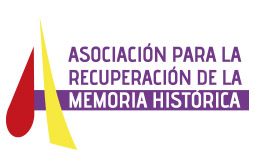00:15 Who are you and from where are you talking to us?
43:02 How are you involved with the Asociación por la Recuperación de la Memoria Histórica (ARMH)?
01:02 When and where was the ARMH born?
01:26 Who founded the ARMH?
01:36 What Links the founders of the ARMH?
01:46 How was the association legally incorporated during its founding?
02:22 Do you have hired staff?
03:09 Economically speaking, how do you sustain all of your activity?
04:39 Why was the name ARMH chosen?
05:03 In your book, Agujeros en el silencio. Renglones de memoria contra la impunidad del franquismo (2000-2020) [Shortcomings in Silence. Line of memory against the impunity of Francoism] you highlight and denounce the strategies of power for hiding, justifying, and consolidating political, legal, and social impunity for the crimes committed during the Spanish dictatorship. What does this impunity refer to and how was it constructed?
10:33 Parallel to this political, juridical, and social impunity a pact of silence is agreed to that continues into our present. What factors protect this silence?
15:11 Who benefits from the prolongation of this historical silence and situation of impunity?
17:29 From your point of view and in light of all the testimonies that the ARMH has collected, would you say that behind the ideological conflict that distinguishes “the two Spains,” there is a class struggle?
19:13 How does the ARMH respond to statements such as “crimes were committed on both sides” or “reparations must occur for both sides”?
23:01 The origin of ARMH is inevitably linked to your family history and your grandfather, Emilio Silva Faba, who died in 1936. Who was your grandfather? Did he die fighting in the war or was he killed?
25:09 You have said in other interviews that you came across the story of your grandfather’s murder almost by chance while you were researching republican guerrillas in El Bierzo. This process is recounted in the book Las Fosas de Franco. Can you tell us how you came across the family story?
28:24 Finally on October 21, 2000, once the location of the mass grave was determined, the remains of your grandfather were exhumed. What steps did your family have to take to carry out the exhumation?
31:17 How much does an exhumation cost?
31:42 Should the Spanish government (regardless of the political party in power) pay for the exhumations process?
33:43 How many mass graves have been identified in Spain?
34:20 What happens when a mass grave is located on private property and the owner refuses to allow the exhumation?
35:37 Is there a census of mass graves and missing persons?
36:23 Are there other groups or associations trying to identify the whereabouts of these graves?
36:52 You have experienced an exhumation firsthand, what does it mean for the family of a missing person to finally find the remains of their relative?
41:15 In 2007, the Spanish Senate passed a Historical Memory law. Isn’t it strange that a law has to be passed in order to make “memory?”
48:37 On September 15, 2020, the socialist government of Pedro Sánchez proposed a draft bill called the Law of Democratic Memory. In 2022 this bill becomes a Law, why draft this second law?
52:59 The 2020 law speaks of “democratic memory” and the ARMH speaks of “historical memory”, is it important to maintain the use of “historical memory?”
54:21 How do you explain the political and electoral use of memory by the different Spanish governments?
57:18 Is Franco’s regime condemned in either of the two memory laws?
58:33 When did Spain begin to speak of “victims” of Franco’s regime?
01:26 Do you consider yourself a victim of Franco’s regime?
01:44 When is the word “disappeared” first used or the fact that there were “enforced disappearances” mentioned?
01:02 Is there an office to assist victims and relatives of victims of Franco’s regime?
01:05 What is being done in formal education to review this moment in Spain’s recent history?
01:08 Are you called to talk about all your work at the University?
01:09 In the last 20 years we have seen a boom of novels, films and documentaries on the subject of the Civil War. Are there any films about the disappeared and the victims of Franco’s regime?
01:12 do you think this project is possible in Spain?
01:16 Do you think it is possible to trust that there will be justice, reparation and truth when you can still hear cheers for Franco in the demonstrations called by the right-wing parties against the PSOE for the election results of 2023?
01:17 How would you describe Spain’s democratic health?
01:20 What price is to be paid when the right to justice, truth and reparation is defended in this country?
01:22 How do you feed your energy in an environment where hostility to the cause defended by the ARMH predominates?
01:24 From the CC we are working on the production of a useful and proactive imaginary that encourages citizen participation in the transformation of the hegemonic system. Can you share some good news with us?

“The Association for the Recovery of Historical Memory began in October 2000, when a small group of people gathered at the site of one of the Spanish Civil War’s bloodiest civilian massacres. There, in the remote village of Priaranza del Bierzo, in Spain’s northern region of León, their mission was to locate and exhume a mass grave containing the remains of 13 Republicans, known to history as the Priaranza 13. They had been executed by a group of the Falange, the pro-Franco fascist movement, on 16 October 1936.
The exhumation broke the silence surrounding the fate of thousands of civilians executed during the 1936-39 Civil War and the 1939-75 Franco regime. It is estimated that 200,000 men and women were killed in extrajudicial executions during the War, and another 20,000 Republicans murdered by the regime in the post-war years. Thousands more died as a result of bombings, and in prisons and concentration camps.
Since their inception, ARMH has worked to defend human rights. The legal advice we have sought has led to cases in the Spanish Supreme Court, Chile, Argentina and Guatemala.” (https://memoriahistorica.org.es/)





